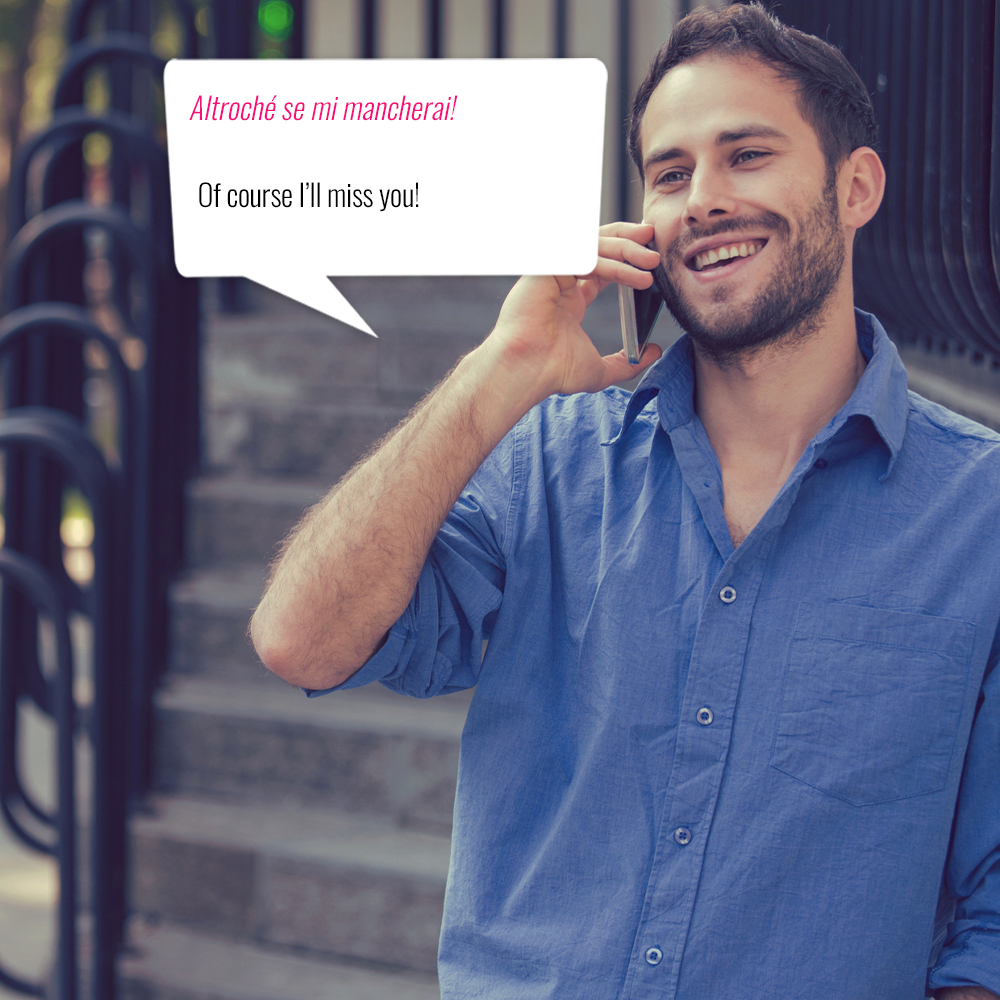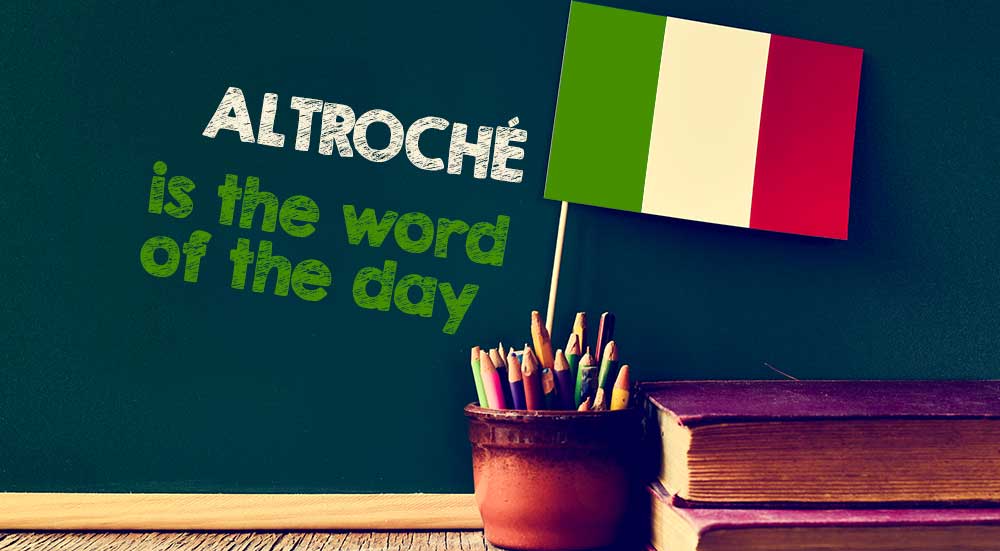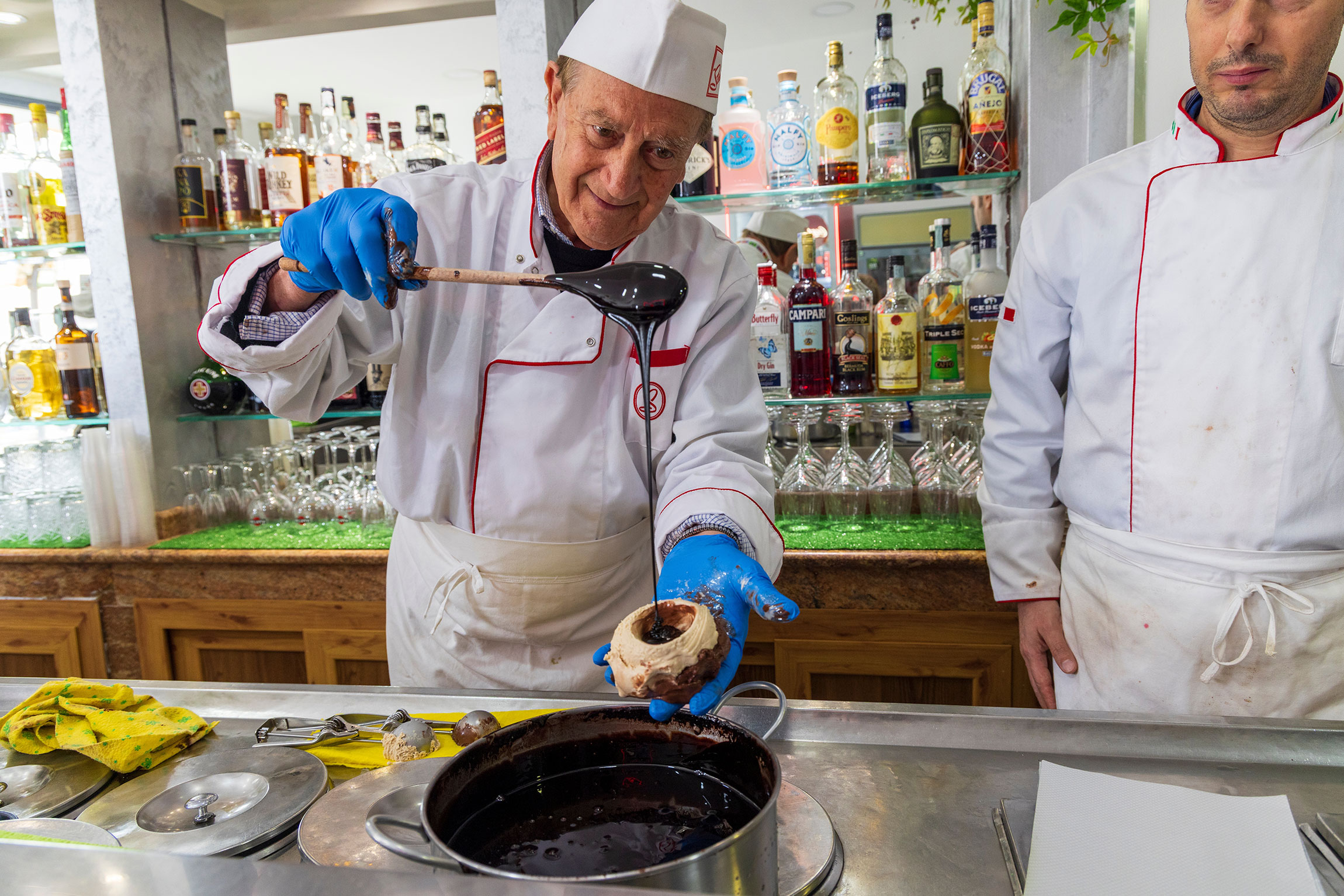If you compare it to other words of our beautiful language, altroché (al-troh-kai) is a relatively new entry in our vocabulary, as its earlier attestations are found sometimes before 1909.
This adverb, which is the union of two words, altro and che, is especially used in familiar language to show you firmly and strongly agree with or really like something, as in the phrases altroché se mi piace il tiramisù! (“you bet I like tiramisù!”) or altroché se sto studiando per l’esame! (“you bet I’m studying for the exam”).
You may find it spelled both with or without an accent: altroché or altroche, although we have the impression the accented version is more common!
One situation when you can easily find altroché is when you speak about food! How often have you heard an Italian friend answering like this, when asked if they enjoyed their meal: altroché se ho mangiato bene! (“you bet I ate well!”).

Altroché, as you can see, it always appears in sentences with a strong emphasis on the speaker’s feelings and opinions, and it is always followed by an exclamation mark, either at the end of the whole sentence (altroché se verrò alla festa! “You bet I am coming to the party!”), or straight after altroché, as in altroché! Verrò alla festa con piacere (“You bet! I’m coming to the party 100%).
When it comes to its translation in English, we used the expression “you bet!” but you could also opt for “of course” which is just as good!

– Altroché se ho comprato i biglietti per il concerto!
– Of course I bought the tickets for the concert!
– Se ho visto la finale del mondiale? Altroché!
– Did I see the world cup finals? You bet I did!
– Altroché se mi mancherai!
– Of course I’ll miss you!






























